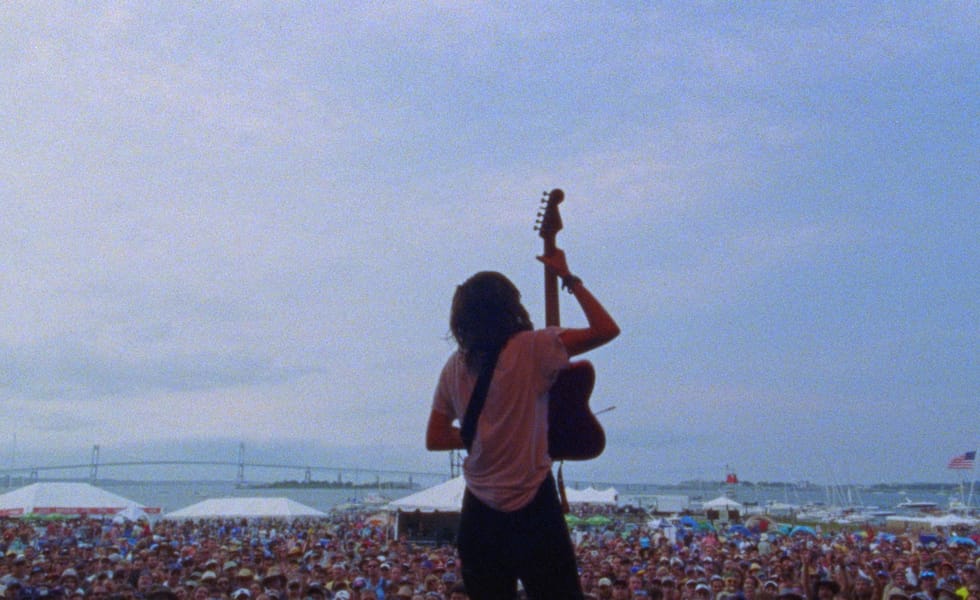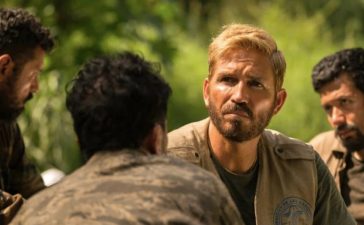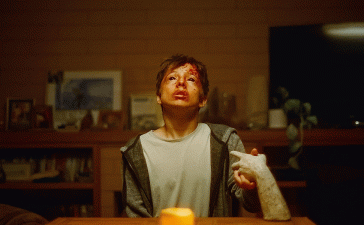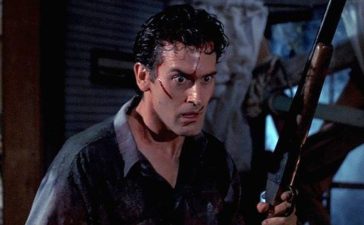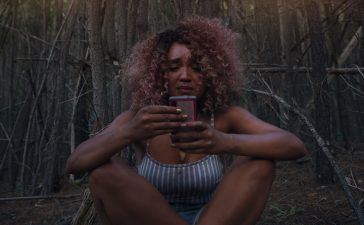As the Melbourne International Film Festival nears closer for 2021, so too does the premiere of Anonymous Club. Centered on capturing the life of revered musician Courtney Barnett over a three-year period, the documentary quickly morphs into a representation of what it means for your passions to collide with your anxiety, transcending the traditional format of a music project to become resonant with any and all viewers regardless of their sonic preferences. Longtime collaborator Danny Cohen kindly offered some time to BLUNT to talk us through how he pieced together a film that translates Barnett’s journey through vulnerability, anxiety, and victory to the big screen.
Was it you who had the idea for Anonymous Club?
We’d talked about it over years of working together. I’ve done, I can’t remember how many now – a handful of projects with Courtney, a bunch of music videos, some album covers, press shots, and it kind of just felt like the next step to explore something else. And then the idea of the documentary came about, and it was just working out what that was, and what the format was, and how that would work in Courtney’s world. The film doesn’t have any interviews per se or talking heads. It’s all narrated by Courtney in the moment using a Dictaphone. It’s just trying to give her the best opportunity to talk without the pressure of the camera interface, basically.
You use some media snippets from interviews that Courtney’s done, her performance on Ellen…Was it a conscious decision that you wanted to portray the way that Courtney has been perceived publicly?
I mean, there’s not a lot of media in there, there’s probably a couple of minutes in the whole documentary. But I guess we use it in the introduction to give people who may not know her that opportunity to see where she’s at in her career, and how that rise to fame was. I think it really helps seeing that for the people that don’t know her music, so they can understand the level that she’s at – particularly where she’s at I guess in terms of fame – and when you realise where she’s at there, it sets up the film to show when Courtney is doubting her career what she actually has to lose.
The documentary shows Courtney having these extremely vulnerable moments. Was there ever a point where you thought it might be too personal?
There were no restrictions on filming Courtney and I kind of set that up quite early, that I would just film anything that I thought was relevant, and if it was too much, she’d let me know, but that never happened. In terms of the Dictaphone, we couldn’t include everything, but it’s all about trying to find a balance. I think when you’ve recorded all of your personal thoughts over three years, there are obviously lots of ups and downs and it’s just trying to find the balance of what that is. Obviously, if you have too much of either of those, you can lose an audience. So I think it’s about trying to really feel what she’s going through for a certain amount of time, but not making it too draining on an audience. I feel like after a certain time people lose interest, or if we weren’t setting it up correctly, to be able to understand why she’s talking about a certain topic.
As a friend, did you have the experience of listening to what Courtney had been sharing on the Dictaphone and feeling like you wished you could have done something for her during those times?
I definitely did. I kind of dumped the Dictaphone every month or so and backed it up, so everything was delayed. But you know, I considered us really good friends when we started the documentary, and I wasn’t aware of any of that. So the first time, definitely, it was really emotional hearing those because that was the first time she had opened up on that level. I didn’t know that existed, I didn’t even know those thoughts were there, because I’d been seeing another side of her, which is what most people see. It definitely was difficult because you hear things and you feel for her, and there were times where I’d mention things as a friend, but it was too late and the moment had passed; it was a couple of months earlier and it’s not really the time to talk about it anymore, or she’s moved on from it, or she’s dealt with it in her own way and doesn’t need to talk about it. I didn’t want to necessarily bring up darker moments for her to trigger her to go through that again or remind her that it’s been recorded and documented. So it was definitely difficult. And then over time as well towards the end of the documentary as we’ve become closer, that sort of process was quite normalised, but then it becomes quite difficult to be documenting your close friend’s journey in that sense.
Who do you want to see this? Did you make it for fans of Courtney exclusively?
We definitely wanted it to transcend fans and music fans when we were making it. I believe because Courtney is so down to earth and honest and relatable that it does transcend that. And her vulnerabilities and anxieties I think are really relatable to everybody. The way she feels about performing, I’m sure everyone’s had a similar imposter syndrome with their work or their passion, it goes hand in hand. I just think because she is so relatable and there is no ego there…I think everyone can find something in her thoughts that speaks to them. And it’s interesting hearing her perspective on how she overcame certain things.
If someone asked you to define what it was about, how would you describe it beyond being a music documentary?
I think it’s definitely that Courtney is an ordinary person, not in a dull sense, but an ordinary person in an extraordinary position. It’s dealing with the pressures of public life and it’s a complicated relationship of one’s passion being connected hand-in-hand with their own anxieties, and what happens when those two things go together.
Courtney has just announced a new record and is going into this entirely new chapter in her life. Do you feel like the story’s been told and it’s time to move on, or does it feel like there’s more to tell?
I don’t think there needs to be more told, by me or in a documentary sense. I think it’s really special that myself and now audiences have had the opportunity to dip into her world for a few years. But I think there’s something really precious about privacy and especially when she is so vulnerable and has opened up so much, it’s almost like she’s earned privacy again. Not earned, but you know, it’s deserved after a certain amount of time of bearing so much.


